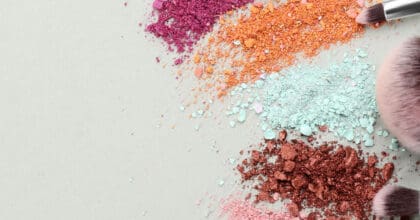-
Articles + –
Are consumers over celebrity fragrances?
Celebrity fragrances appear to be on their way out as consumers have lost interest in them. Despite this, there are ways to make celebrity fragrances relevant again, and the key is to stay within the “luxury boundaries” of the fragrance category and make the brand’s aspiration and equity more important than the celebrity’s fame. Fragrance is also not the only way to go; other categories such as make-up and lifestyle beauty can be a way to reposition celebrity-endorsed products.
Celebrity fragrance needs to be reinvented as their relevance in today’s market is falling. Not just consumers, but even the celebrities themselves are feigning interest, as seen when Parlux filed a lawsuit against Jay-Z in January 2016 because he failed to promote his own signature fragrance Gold Jay Z.
Only 7% of US consumers have purchased a fragrance because it was endorsed by a celebrity
Mintel research shows that the trend for celebrity fragrances is no longer appealing to consumers. Even in markets like the US and UK where celebrity brands used to be the strongest, they are now seen as outdated, has-been products: only 7% of US consumers, and 5% of UK consumers say that they have purchased a fragrance because it was endorsed by a celebrity.
Some companies invested in celebrity fragrance when the sector was booming in the late 1990s and early 2000s. Brands such as these need to reassess their strategy towards celebrity licences, and while some – such as Coty – are gradually diversifying their portfolio, others – like Elizabeth Arden and Parlux – still have a significant number of celebrity licence contracts to deal with.
Signing deals with celebrities still provides the opportunity to succeed because of their high marketing impact and massive social media followings. Despite this however, brands must consider adopting a more high-end, progressive approach if they hope to achieve success.
Treating celebrity brands like luxury brands
“Bling” and fame-based marketing now has limited appeal amongst fragrance consumers but there are ways to maintain celebrity fragrances’ relevance by moving them closer to those high-end fragrances that rely on low-key marketing and subtle, luxurious touches. Furthermore, the celebrity in question needs to be more than just a name on a bottle of perfume; she/he needs to have a brand – having developed a fashion or cosmetic range for instance – and be involved in the overall design of her/his own fragrance, including its scent and packaging.
The Elizabeth and James Nirvana fragrance collection is a good example of how celebrity fragrances can be reinvented and is one of Sephora US’ best-selling ranges. The founders behind the brand are celebrity sisters the Olsen twins, who now both work as fashion designers. Their high quality products offer sophistication and quality akin to that of any luxury fragrance. Likewise, the actress, model and singer Anja Rubik launched her first fragrance, named “Original,” which borrows from the niche perfume segment in its marketing approach. This fragrance is available in a handful of selected stores, including high-end London department store Liberty.
The role of celebrities in the modern world is changing, and fragrance is not the only category where this is evidenced. We have seen some celebrities – many of them now businesswomen/businessmen – whose fame is being used to back their own brands, with concepts they truly relate to, or which have been inspired by their own lifestyles. This is the case with Jessica Alba and her successful Honest Company, Drew Barrymore and Flower Beauty, and Eva Mendes with Circa. Victoria Beckham in particular is now more widely renowned for her high-end fashion line than for her music career, and she has recently announced the launch of a limited edition make-up collection in conjunction with Estée Lauder.
What we think
Celebrity brands must consider adopting a more high-end, progressive approach if they hope to achieve success as consumers become more and more disinterested in celebrity fragrances. While fame-based marketing now has limited appeal amongst fragrance consumers, there are ways to maintain celebrity fragrances’ relevance by engaging consumers through low-key marketing and subtle, luxurious touches.
We see some of the greatest success with those celebrities whose fame is being used to back their own brands, with concepts they truly relate to, or which have been inspired by their own lifestyles.
Emmanuelle is Mintel’s Global Fragrance and Colour Cosmetics Analyst, working across several beauty categories, with clients around the world providing trends, markets and innovation insights and analysis. She is frequently a key speaker at leading beauty tradeshows and is regularly called to contribute to international, national and trade publications.
-
Mintel StoreGet smart fast with our exclusive market research reports, delivering the latest data, innovation, trends and strategic recommendations....View reports
-
Mintel LeapMintel Leap is a revolutionary new AI-powered platform that will transform your research process....Book a demo








































